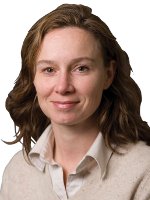FACULTY
We are an interactive group, with a strong emphasis on collaboration and cooperation. Faculty are deeply engaged in student mentoring; they provide both oversight and support as students work toward their doctoral degree. The intent is to train students
as future academic peers, and provide a rigorous and engaging intellectual environment for all program members.
Members of the CSD Program currently include 43 full time PhD students and 66 faculty from 16 basic science and clinical departments. Our faculty members and their labs further
align themselves with, but are not restricted to, 1 or more of 3 research sub-areas under the umbrella of our CSD Program:
Primary Research Sub-Areas
Cell Biology
Cell biology is a dynamic discipline that combines the interests and methods of a wide variety of scientific fields. Studies of cell function are central to modern biological research as they focus upon investigating the basic structural and functional unit of life: the cell. By applying a wide range of experimental approaches to the study of cellular processes, including biochemical and physical analysis of molecules and cells in culture, and morphological methods, cell biologist have made major discoveries that have had a dramatic impact on human health. This key link between fundamental studies of cell function and their relevance to disease is highlighted by the work of the Cell Biology Faculty within the Graduate Program in Cell Biology, Stem Cells and Development. Ongoing studies in the areas of membrane trafficking, membrane dynamics, cell signaling, motility, organelle composition and function, studies of the cytoskeleton and extracellular matrix provide important insights and information that is ultimately crucial for developing effective treatments for cancer, heart disease, AIDS, and a host of other diseases that disrupt normal cell function.
Stem Cells
Stem Cell Biology Research offers enormous therapeutic potential for a wide range of clinical disorders including Parkinson's disease, diabetes, chronic heart disease, end-stage renal disease, liver failure and cancer. Realizing the promise of using stem cells in treating human disease will ultimately depend upon defining the cellular and molecular mechanisms that regulate cell proliferation and differentiation. These fundamental principles are at the heart of modern Cell Biology, Stem Cells and Development and highlight the dynamic interdisciplinary work being undertaken by the faculty and graduate students in the Cell Biology, Stem Cells and Development Graduate Program at CU Anschutz.
Development
All animals begin life as a single cell, the result of a fusion between sperm and egg. Through a staggering multitude of molecular, cellular and tissue level events, a properly organized, multicellular embryo is formed. In the last decade, our understanding of many of these processes has expanded dramatically due to the advent of cellular, molecular biological and genetic approaches. Intriguingly, many of these processes first recognized in developmental contexts have also been implicated in human disease. These types of fundamental studies form the core of cutting edge research in Developmental Biology by faculty of the Graduate Program in Cell Biology, Stem Cells and Development at CU Anschutz.
Faculty List

Patricia Ernst PhD
(she/her/hers)
Professor
- Pediatric Hematology General Operations (SOM)
- Completed Mentor Training Course; Completed Upstander/Bystander Training
Email Address:[email protected]
Primary Phone:3037248804
Mailing Address:
- CU Anschutz
Research I North
12800 East 19th Avenue
4117
Aurora, CO 80045